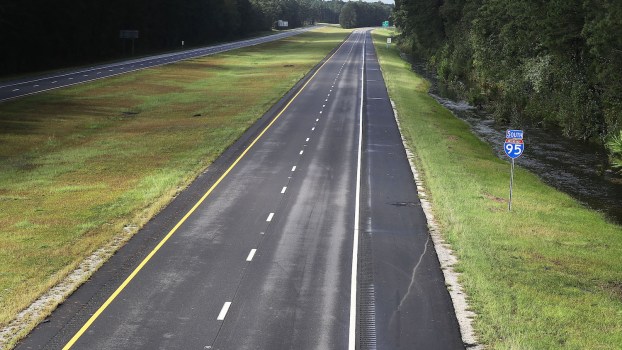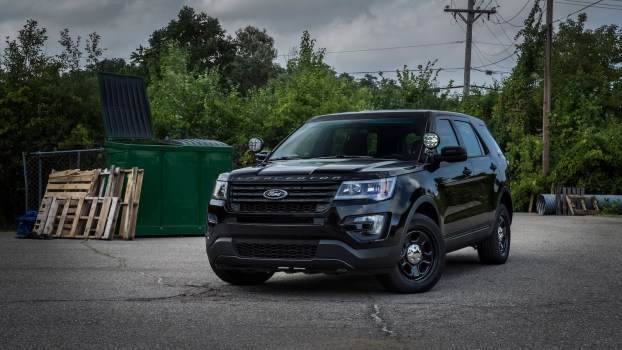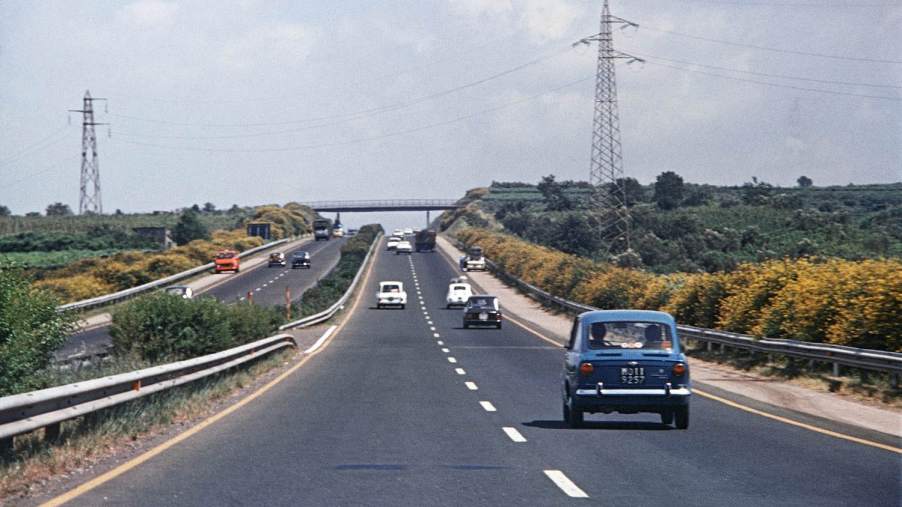
Is It Actually Legal to Cruise Along in the Left Lane of the Highway Without Passing?
So you were, driving down the highway at a good clip the other day when you caught up with a car cruising slowly in the left lane. And they weren’t even passing anyone. The jerk didn’t seem to notice you behind them, so eventually, you had to pass on the right. Depending on your state, this driver blocking the left lane of the interstate highway was probably breaking the law. And police are enforcing these laws more often.
Blocking the left lane is dangerous
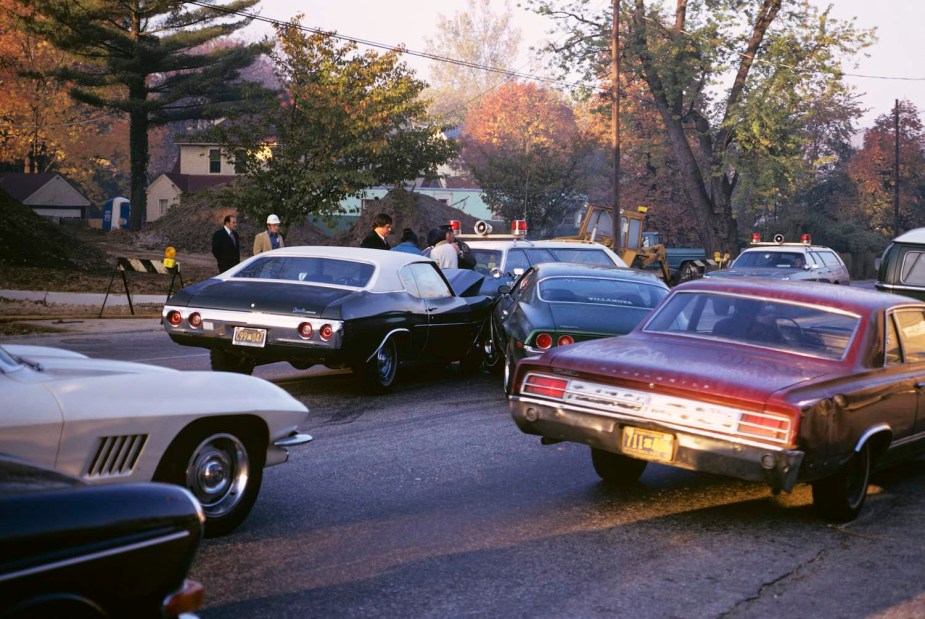
Driving slowly in the passing lane of the interstate highway causes crashes. Other drivers can rear-end you or get in trouble while trying to pass you on the right. Blocking the left lane can also congest the interstate highway and cause road rage. In fact, AutoInsurance.org revealed that this practice is more dangerous than driving 10 mph over the speed limit.
But remember, right-hand passing maneuvers lead to many of these crashes. If you catch up with a slowpoke in the left lane, flash your high beams and see if they pull over to the right. You can even tap your horn to let them know you’re behind them. Either one of these options is safer than passing on the right.
In a perfect world, everyone would travel in the right lane. Then, when anyone needs to pass, the left lane is available to do so. This means quicker cars wouldn’t need to slam the brakes whenever they encounter a slow car in the left lane. They also wouldn’t need to weave back and forth through slow traffic.
There are laws against blocking the left lane
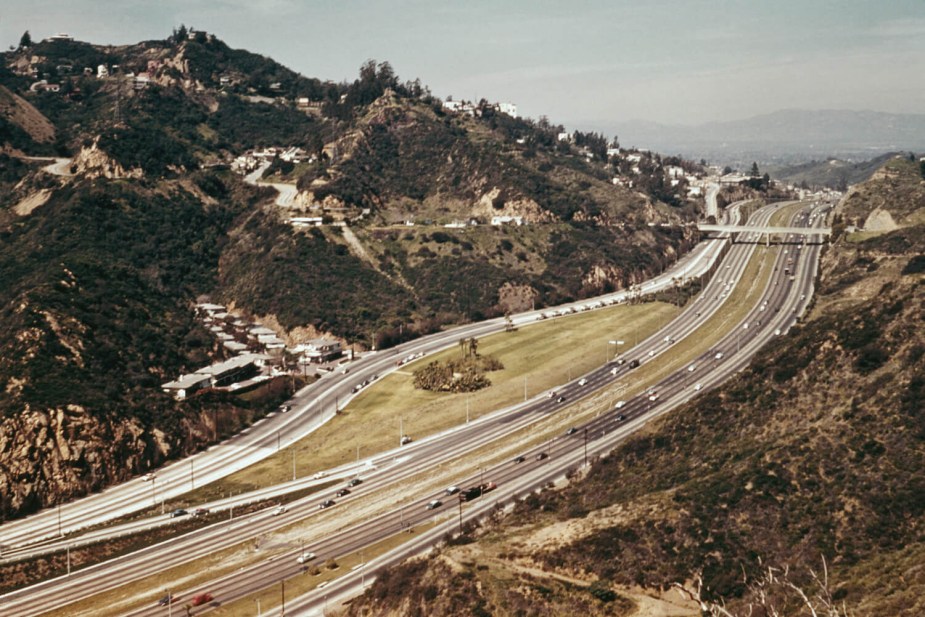
Every state has some kind of law against driving very slowly and blocking the highway’s left lane. But these laws are not all the same. In some states, you must maintain a certain speed compared to the speed limit. In other places, you must keep up with the surrounding traffic. And in some states, you aren’t breaking the law until you block traffic.
The strictest state laws on blocking the left lane be found in Illinois, Kansas, Kentucky, Louisiana, Maine, Massachusetts, New Jersey, and West Virginia. My colleague Alison Barfield covered the recent South Carolina ban against camping in the left lane. We are seeing new strict laws from many states, especially in the South. In total, eleven states reserve the left lane for passing or turning.
There is a perfect case study already available: the German Autobahn. Keeping the left lane free is one of the reasons that this interstate highway, without a speed limit, works at all.
Why don’t police pull over slowpokes blocking the left lane?
According to the The Washington Post, most of us are under the false assumption that fast cars cause accidents and slow cars don’t. And police officers aren’t immune from these assumptions. But things are changing.
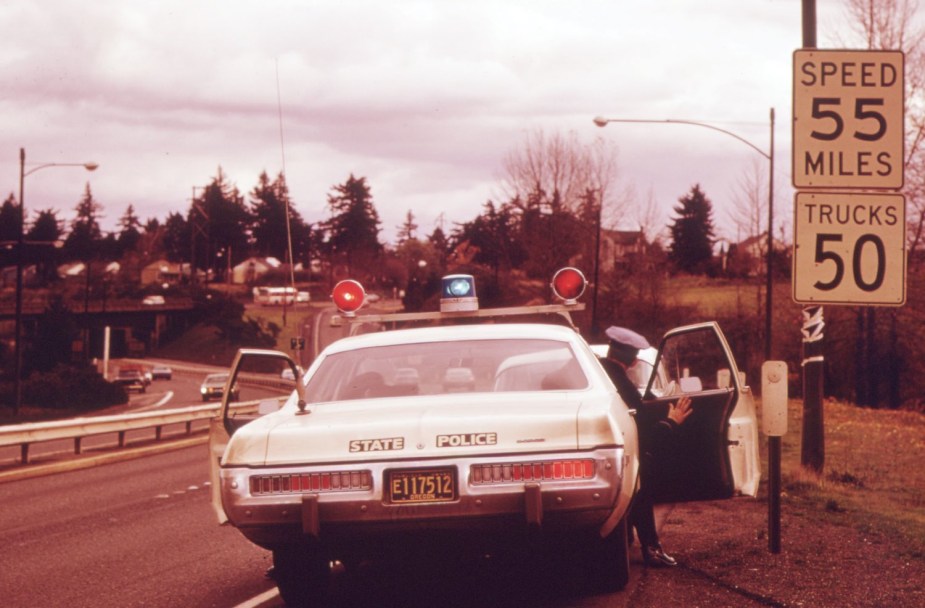
In practice, most police officers on the interstate highway will flash their lights at a slow driver blocking the left lane, and if the driver moves over, the cop will leave them be. But many states are pressuring police to begin giving warnings or even tickets.
Sgt. Keving Pope, Georgia State Police, revealed to the Washington Post that he’s given written warnings to 25+ drivers. “I’ve just been trying to educate people…Once you explain it to them, they’re like, ‘Yeah that makes sense.’” Georgia even has a $500 fine he can levy if he wants.
Washington, Texas, and Ohio are other states pushing their police officers to enforce their “move over” laws. For their part, auto insurance companies are beginning to give drivers pulled over for going too slow the same rate hikes as drivers going too fast.
What do you think? Is driving slowly in the left lane as dangerous as speeding? Should it be ticketed the same way? Let us know in the comments below.
Next, find out if the spikes on semi-truck wheels are legal or learn more about the danger of cruising slowly in the left lane in the video below:
